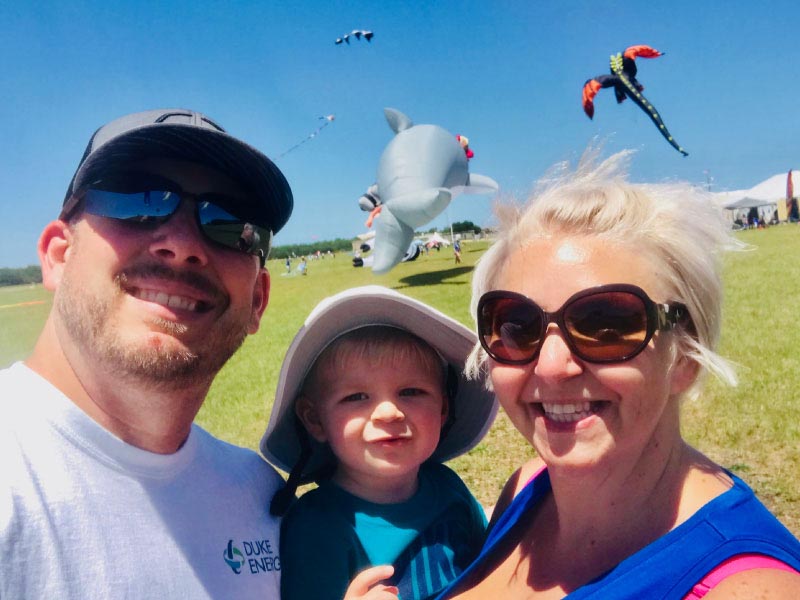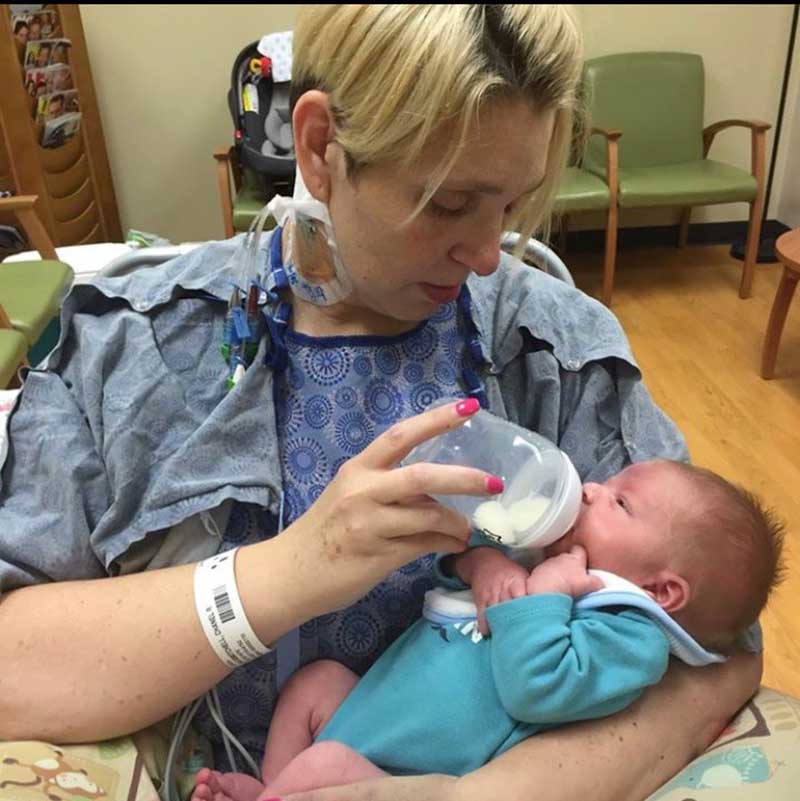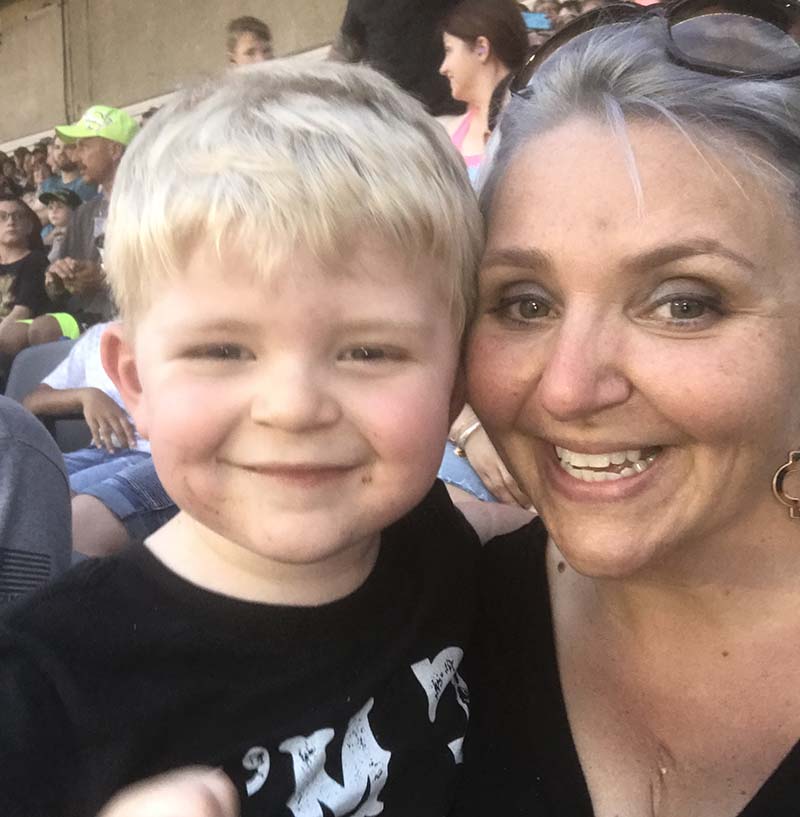New mom faces life-threatening heart attack days after giving birth
By American Heart Association News

Chanel Davis-Mitchell and her husband, Benji Mitchell, were looking forward to parenthood after the birth of their healthy baby boy, Braxton.
Despite a high-risk pregnancy and a massive amount of fluid weight Chanel gained during the final two months, doctors assured her all would be fine after the delivery.
Then, 11 days after Braxton's birth in May 2016, Chanel and Benji were preparing to take Braxton to a pediatrician appointment when Chanel began feeling ill. She had chest pains and thought she had an extreme case of heartburn.
"It was the worst feeling I had ever had," she said.
As they drove toward Braxton's doctor's office about 30 miles away in rural North Carolina, Chanel's symptoms worsened. She felt nauseous. Her arm ached. Benji noticed Chanel seemed to be in a cold sweat. She chewed antacid tablets and was barely responsive.
Benji stayed calm and changed course. He headed straight to an emergency room.
"Instinct said, 'Go to the hospital,'" Benji recalled.
Chanel remembers being hooked up to an EKG monitor and telling a doctor she had "really bad gas."
"No," the doctor replied. "You're having a heart attack."
"Great," she said. Then her heart stopped.
Chanel, 36 at the time, was in cardiac arrest. The medical team performed CPR and delivered a shock to her heart to get it beating again. It took three minutes.
"I didn't know if she was going to come out of that room alive or not," Benji said.
Chanel was airlifted from Elizabeth City, North Carolina, to a larger hospital in Virginia Beach, Virginia. Aboard the helicopter, she struggled to breathe as her lungs filled with fluid. Thoughts rushed through her mind. Unable to see clearly, she thought, "This is my first time ever flying – and I can't even see out!"
At the Virginia hospital, her heart stopped again. Doctors revived her again.
She underwent emergency quadruple bypass surgery. She had blockages of 90% or greater in four arteries and had suffered what is known as spontaneous coronary artery dissection, or SCAD, a sudden tearing of the artery wall.
SCAD patients are often women who are otherwise healthy; many have recently had a baby. Recurrence is a continuing risk.

Doctors later told Chanel the type of heart attack she had is almost always fatal. They warned she would likely face a long recovery, but Chanel was able to leave the hospital after only four days.
"It was pretty much like nothing had happened," said Chanel, a special education teacher who even resumed that next week the university classes she was taking.
She continued to gradually regain her strength through a cardiac rehabilitation program.
Both Chanel and Benji said getting to a hospital right away saved Chanel's life.
"Another five minutes and it probably would have ended a different way," said Benji, who remained at Chanel's side continuously after her surgery. When she couldn't speak, the couple communicated through sign language Chanel had been learning, signing "I love you" to each other.
One of Chanel's biggest struggles has been living with the fear of having another heart attack.
"I worry, 'Is it going to happen tomorrow? Is it going to happen tonight?' I worry about what I would leave behind," she said.
Driven by that fear, she started a journal. Every day for the first three years of Braxton's life, she wrote her thoughts so Braxton would always have "a direct communication" from her.
Now 4, Braxton is too young to understand what his mother endured. Curiously, though, when he sees a heart shape, he says, "That reminds me of Mommy." When Braxton was a baby, Chanel noticed his nostrils are shaped like hearts, something Chanel and Benji still chuckle about.

Chanel, now 40, continues to take preventive heart medication. Recently, she scheduled a visit with a SCAD specialist in Tennessee. She wants to be proactive about avoiding another heart attack.
Though SCAD isn't rare, meeting a survivor is, said Chanel, who recently took part in an American Heart Association Go Red for Women event.
"It was very empowering to see other women who have been through this much," she said. "Everyone was my sister, even though I didn't know them. It was very moving. We just had this connection."
Stories From the Heart chronicles the inspiring journeys of heart disease and stroke survivors, caregivers and advocates.
If you have questions or comments about this story, please email [email protected].





